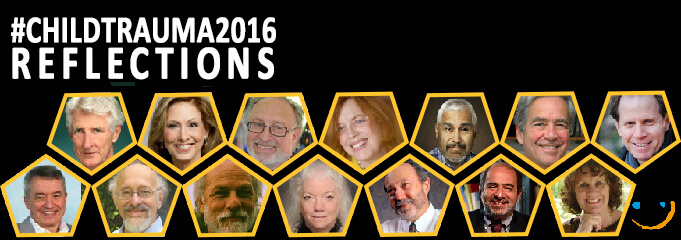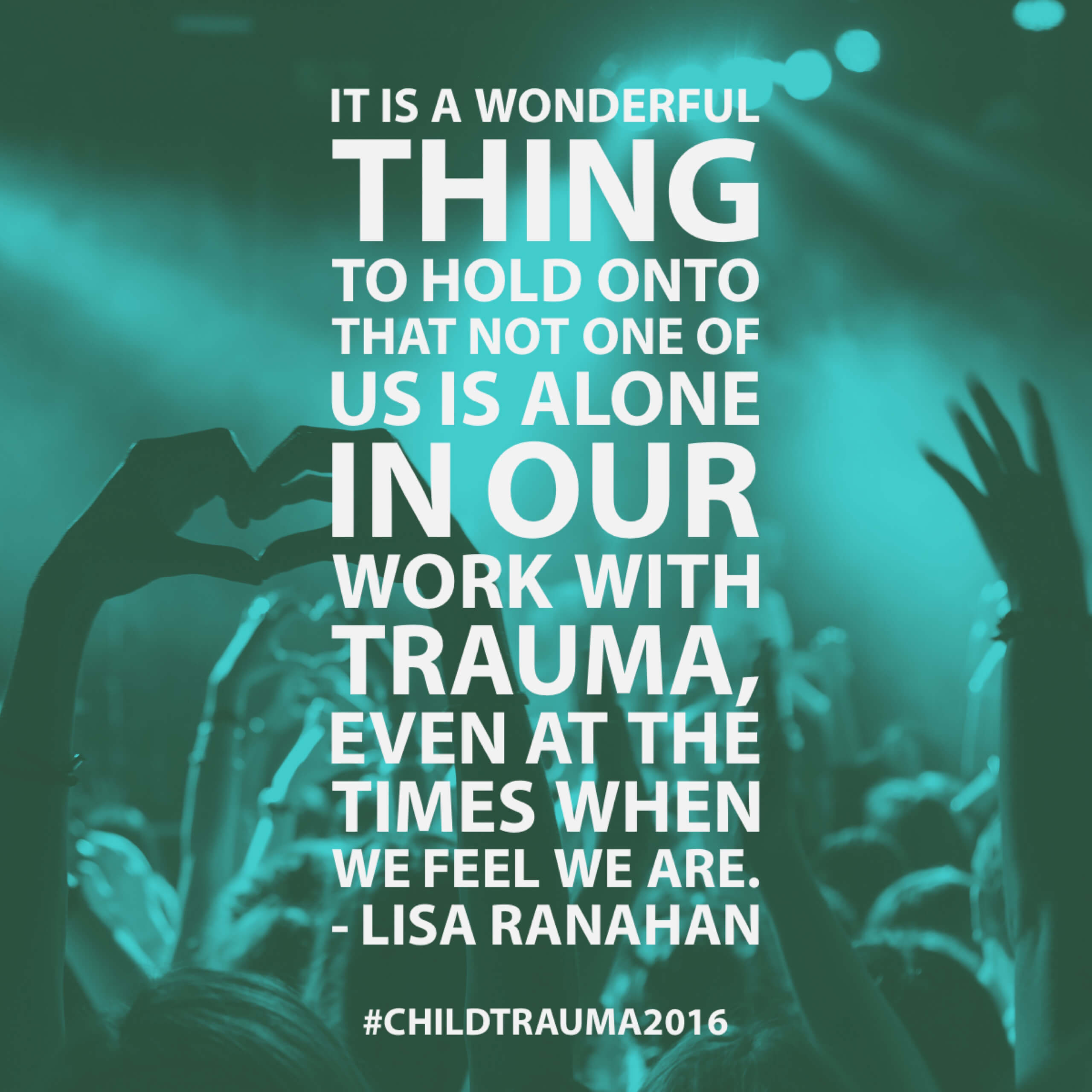
June 10, 2016
#childtrauma2016 reflections – Day 3 – Lisa Ranahan
This article was authored by Lisa Ranahan,
Program Manager, Therapeutic Care at the Australian Childhood Foundation.
So, we have come to the middle day of five days of thought provoking, stimulating, sometimes overwhelming learning and sharing. Today is a day where I feel I need to reflect on the range of key messages that stood out for me over the course of:
- a cool jazz performance from 2 talented young men
- 3 plenary sessions from our esteemed experts
- 2 remarkable sessions of concurrent papers from professionals across Australia and around the world
- a closing panel discussion that was rich, integrative and included a surprise ‘appearance’ from Dan Siegel.
 The key messages for me were that:
The key messages for me were that:
- we need to keep paying attention to, and building our understanding of, the differences between boys and girls in their development from in utero and beyond
- the language of the 2 hemispheres are different and need to be heard, and that symbols provide an important process for that communication
- the value of neuroception as a physiological process supporting us in our capacity to both feel safe and be safe
- there is a significant network of professionals across sectors, locations, roles and passions who are working for and with infants, children, young people, families and adults in an extraordinary multitude of ways that privilege development, relationship and integration. It is a wonderful feeling to hold onto that not one of us is alone in our work with trauma, even at the times when we feel like we are.
- The opportunity to share quality practice with each other is one that should be both savoured and replicated as we move back into our everyday
- there are multiple areas for further research and practice in the field of developmental trauma, including the notion that perhaps we don’t call it trauma at all, because trauma is not static and contains multiple facets.
These are some of the conversations that we will continue in our work at the Australian Childhood Foundation when the conference concludes. What will the conversations in your workplace be?
